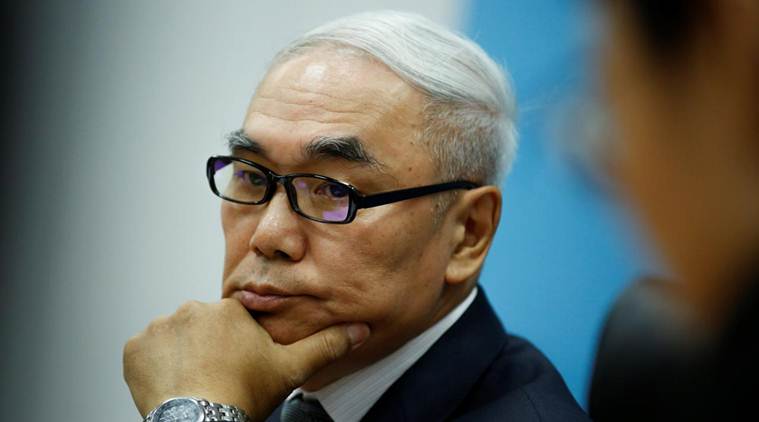China envoy says no accurate figure on Uighurs fighting in Syria
China is worried that Uighurs, a mostly Muslim people who speak a Turkic language and hail from China's far western region of Xinjiang, have gone to Syria and Iraq to fight for militants, having travelled illegally via Southeast Asia and Turkey.

The Special Envoy of the Chinese Government on the Syria Issue Xie Xiaoyan attends a media briefing at the foreign ministry in Beijing, China. Xie Xiaoyan said that China talks with all countries, including Syria, about the fight against terror. (Reuters photo)
There is no accurate figure of the number of ethnic Uighurs who have gone to fight with militant groups in Syria, China’s special envoy for the Syrian issue said on Monday, adding he hoped to return to Syria to gain a clearer picture.
China is worried that Uighurs, a mostly Muslim people who speak a Turkic language and hail from China’s far western region of Xinjiang, have gone to Syria and Iraq to fight for militants, having travelled illegally via Southeast Asia and Turkey.
2m 2s

Pro-Assad villages evacuated in northern Syria
Buses were set to evacuate thousands of residents and fighters from pro-Assad villages in northern Syria on Wednesday, in a deal struck between rebels and the government.
The Syrian ambassador to China told Reuters last year that up to 5,000 Uighurs are fighting in various militant groups in Syria.
Islamic State claimed responsibility for the killing of a Chinese hostage in 2015, highlighting China’s concern about Uighurs it says are fighting in the Middle East and fears they may return to China to carry out attacks.
Xie Xiaoyan told a news briefing in Beijing that China talks with all countries, including Syria, about the fight against terror.
“As for how many Uighur terrorists there are, I’ve seen all sorts of figures. Some say 1,000 or 2,000; 2,000 or 3,000; 4,000 or 5,000, and some say even more,” Xie said, speaking after a visit to Syria, Saudi Arabia and Israel last month.
“I hope that next time I have the opportunity to go to Idlib to have a look,” he added, referring to the last big swathe of territory still held by Syrian rebels.
Idlib is controlled by an array of insurgent groups, with Sunni Muslim jihadists believed to be the dominant force there.
China has blamed a group called the East Turkestan Islamic Movement, or ETIM, for many of the attacks in recent years in Xinjiang, though some experts have questioned whether the group exists in any coherent form.
Xie cited a United Nations report that there were 20,000 or 30,000 people fighting with terror groups in Syria and Iraq.
“Certainly in those areas there are rather a concentration of ETIM terrorists. This is certain,” he added.
It is not possible to independently verify the number of Uighurs in Syria, or Iraq.
Rights groups and Uighur exiles say many Uighurs have fled to Turkey simply to escape Chinese repression at home, accusations Beijing denies.
Xinjiang is a highly sensitive issue for China.
Earlier this month, a United Nations human rights panel said it had received many credible reports that 1 million Uighurs in China are held in what resembles a “massive internment camp”. China has accused “anti-China” forces of being behind the criticism of its record and policies in Xinjiang.












































No hay comentarios:
Publicar un comentario